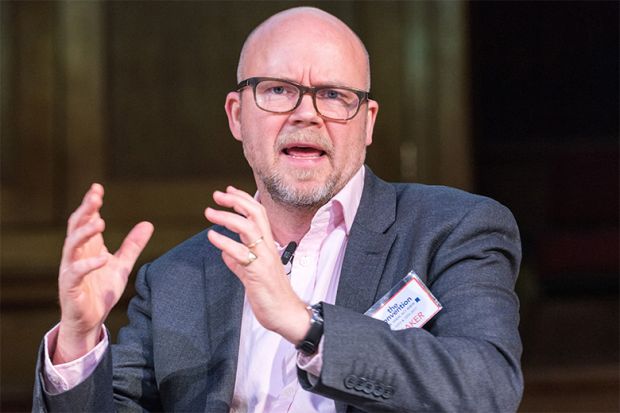Concern about gaps in expertise on the board of England’s new universities regulator have emerged amid the growing backlash against the appointment of Toby Young to the panel.
Anger at the decision to appoint the former Sun columnist to the board of the new Office for Students led more than 150,000 people to sign an online petition demanding that Theresa May sack the “entirely unqualified” Mr Young, citing his controversial comments made on Twitter and in print.
Labour MP Dawn Butler, who is shadow equalities minister, also called for Mr Young’s removal from the OfS over his history of “misogyny and homophobia”, while several Twitter users have drawn attention to his repeated comments about women’s breasts.
The Spectator columnist said he regretted his previous “sophomoric and silly” remarks – many of which he has now deleted from Twitter – but insisted that many of his comments had been “deliberately misinterpreted to try and paint me as a caricature of a heartless Tory toff”. In a Facebook post, he said his time at “the coalface of setting up innovative new schools” qualified him for the OfS, which is tasked with increasing competition in the English university sector.
However, Michael Merrifield, head of the University of Nottingham’s School of Physics and Astronomy, said it was “outrageous that one of the seats [on the OfS board] should be wasted on a court jester” given the “notable gaps in the expertise on this board”.
“The absence of any working STEM practitioners is bizarre given the importance of delivery in this challenging area to meet the government’s industrial strategy,” Professor Merrifield told Times Higher Education.
Richard Jones, professor of physics at the University of Sheffield, said he was also concerned by the “surprising omission” of scientists or engineers from the OfS board.
This meant there was no one with a real understanding of “complex interplay between research, teaching and funding provided by international students”, said Professor Jones, which he believed was vital if the OfS was to fulfil its remit of encouraging new STEM providers to enter the market.
“I am sure this board has the best intentions but [it is a concern] if there is no one who really knows how [science departments] make their sums add up,” said Professor Jones.
Roger Brown, the former chief executive of the Higher Education Quality Council, also criticised the business leaders appointed to the OfS board, including Elizabeth Fagan, senior vice-president at Boots, and Katja Hall, a former head of external affairs at HSBC.
Professor Brown said HSBC had been “mired in one scandal after another” in recent years, including having been fined $1.9 billion (£1.4 billion) in the US in 2012 for allowing itself to be used to launder Mexican drug cartel money and €33.2 million (£29.4 million) by the European Commission in 2016 for rigging financial markets, while Boots has been accused of avoiding about £1.2 billion in UK tax since it moved its Nottingham headquarters to the low-tax Swiss canton of Zug in 2007.
“The idea that these companies can teach higher education about quality or efficiency is ridiculous,” said Professor Brown.
“I doubt these board members will have much influence, but the symbolic issue is that this crystallises the government’s aspiration that universities become more like these wretched companies.”




